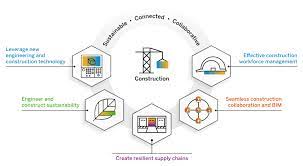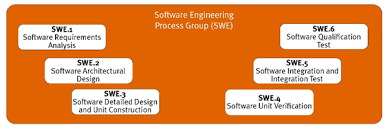Exploring the Evolution of Mobile Applications Development
Understanding Mobile Applications Development
In today’s digital age, mobile applications have become an integral part of daily life. From social networking to e-commerce, mobile apps provide users with seamless access to a variety of services right at their fingertips. But what goes into developing these applications? This article explores the key aspects of mobile application development.
The Importance of Mobile Apps
Mobile applications are essential for businesses looking to enhance customer engagement and improve operational efficiency. With the increasing number of smartphone users worldwide, having a well-designed app can significantly boost a company’s visibility and accessibility.
The Development Process
The development of a mobile application typically involves several stages:
- Planning: This initial phase involves defining the app’s purpose, target audience, and core features. It sets the foundation for the entire project.
- Design: In this stage, developers create wireframes and prototypes to visualize the user interface and experience. A well-thought-out design is crucial for user satisfaction.
- Development: During development, programmers write code using languages such as Swift for iOS or Kotlin for Android. This phase also includes integrating APIs and other necessary functionalities.
- Testing: Rigorous testing ensures that the app functions correctly across different devices and operating systems. Developers address any bugs or issues that arise during this stage.
- Deployment: Once testing is complete, the app is ready for launch on platforms like Apple’s App Store or Google Play Store.
Key Technologies in Mobile App Development
A variety of technologies are used in mobile app development to enhance functionality and performance:
- Coding Languages: Popular languages include Java, Swift, Kotlin, and JavaScript frameworks like React Native.
- IDEs: Integrated Development Environments (IDEs) such as Android Studio and Xcode facilitate efficient coding and debugging.
- Cloud Services: Cloud-based tools help manage data storage, authentication, and backend processes seamlessly.
The Future of Mobile Applications
The future of mobile apps looks promising with advancements in technologies such as artificial intelligence (AI), augmented reality (AR), and 5G connectivity. These innovations will enable more sophisticated features and faster performance, enhancing user experiences even further.
The demand for skilled developers continues to grow as businesses seek to leverage these technologies to stay competitive in a rapidly evolving market.
Conclusion
The world of mobile application development is dynamic and ever-changing. As technology advances, developers must stay informed about new tools and trends to create innovative apps that meet user demands. Whether you’re a business looking to develop an app or an aspiring developer seeking knowledge in this field, understanding these fundamentals is essential for success in today’s digital landscape.
Understanding Mobile App Development: Getting Started, Developer Roles, Definitions, and Types
- How do I start a mobile app development?
- What does a mobile application developer do?
- What is meant by mobile application development?
- What are the three 3 types of mobile application?
How do I start a mobile app development?
To start mobile app development, it is essential to begin with a clear plan and understanding of your app’s purpose and target audience. Conduct thorough market research to identify user needs and preferences. Next, choose the right platform (iOS, Android, or both) based on your target audience and budget. Familiarize yourself with coding languages such as Swift for iOS or Java for Android, and consider using frameworks like React Native for cross-platform development. Collaborate with experienced developers or enroll in online courses to enhance your skills. Lastly, prioritize user experience and testing throughout the development process to ensure a successful mobile app launch.
What does a mobile application developer do?
A mobile application developer is responsible for designing, building, and maintaining mobile applications for various platforms such as iOS and Android. They work closely with clients or stakeholders to understand their requirements and develop customized solutions that meet specific needs. Mobile app developers utilize programming languages like Java, Swift, or Kotlin to create functional and user-friendly applications. Additionally, they conduct thorough testing to ensure the app performs seamlessly across different devices and operating systems. Continuous learning and staying updated on the latest technologies are essential for mobile application developers to deliver innovative solutions that enhance user experiences.
What is meant by mobile application development?
Mobile application development refers to the process of creating software applications specifically designed to run on mobile devices such as smartphones and tablets. This intricate process involves designing, coding, testing, and deploying applications that cater to the unique features and requirements of mobile platforms. Developers utilize various programming languages, frameworks, and tools to build functional and user-friendly mobile apps that offer a seamless experience to users. Mobile application development plays a crucial role in enabling businesses to reach their target audience effectively and enhance customer engagement in today’s mobile-centric world.
What are the three 3 types of mobile application?
When it comes to mobile application development, there are generally three main types of mobile applications: native apps, web apps, and hybrid apps. Native apps are specifically designed for a particular platform (iOS or Android) and offer high performance and excellent user experience. Web apps are accessed through a web browser and do not require installation, making them versatile across different devices. Hybrid apps combine elements of both native and web apps, allowing developers to write code once and deploy it across multiple platforms. Each type has its own advantages and considerations, depending on the project requirements and target audience.










